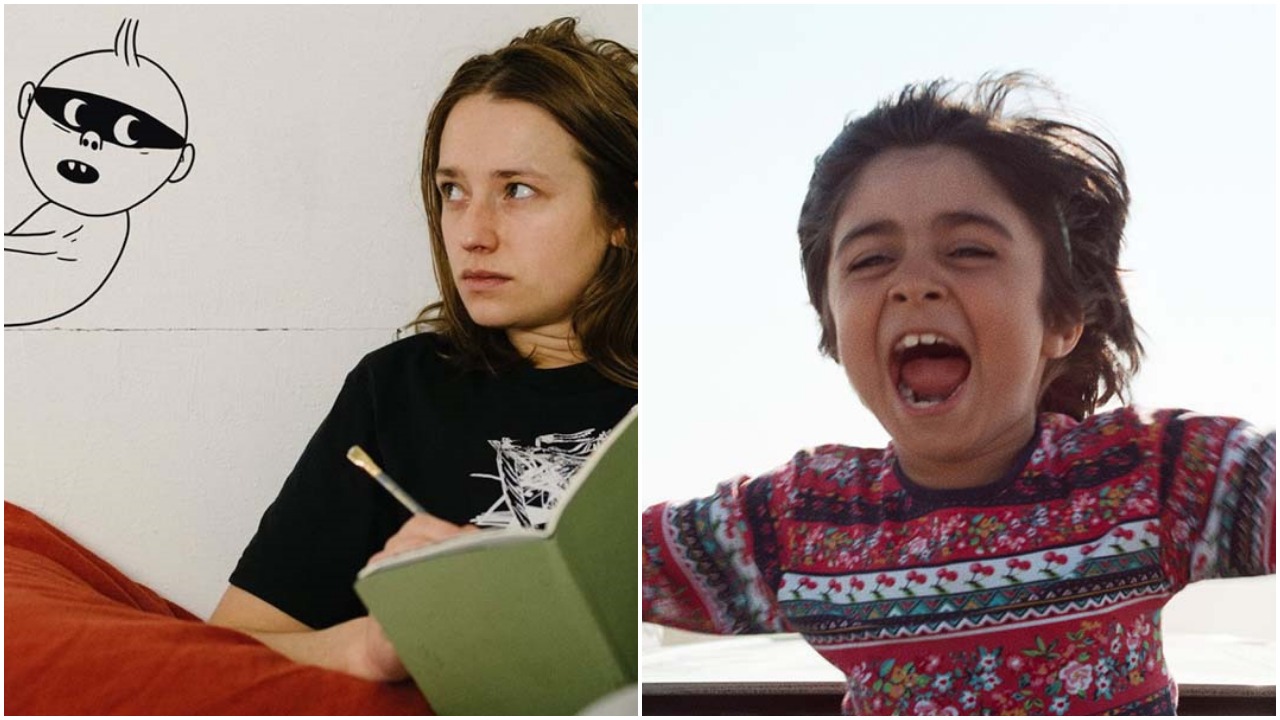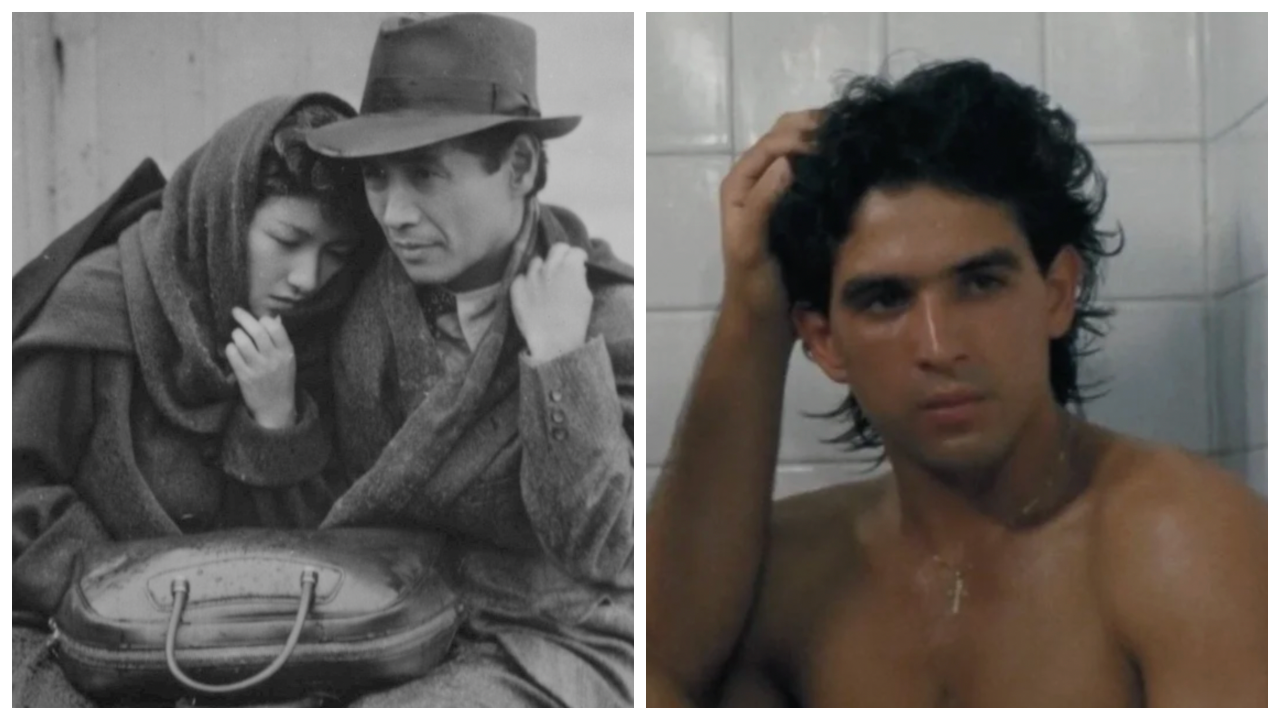Two Wednesdays ago I hit you with an extensive preview of the Minneapolis-St. Paul International Film Festival, based on scouting, viewing, and guesswork. One week, two long previews, and 15 films later, I’m ready to deliver my progress report.
Honestly, it’s been a hell of a week—I’m not mad I saw even the less rewarding movies in this batch. (Which is to say, turns out I’m pretty good at guessing what I like.) So here are some mini-reviews, ranked more or less in order of preference.
While I hope this guides you through the next week of the festival, some of these movies have unfortunately finished their run. But many are still streaming via MSPIFF, and some will get a wider release later this year (or eventually surface on some streaming site or another).
The son of censored Iranian cinema great Jafar Panahi shares his dad’s knack for working with child actors, though Panah P. lets his moppet discovery show off a little more. in fact, six-year-old Rayan Sarlak is so charismatic he threatens to overwhelm the movie. But his dominating charm (and incredible comic timing) is what keeps the adults trapped in a car with him for a cross-country drive from addressing their issues—and what leavens the sadness as the film’s core. The landscape they pass through is framed with doting awe, and one harrowing scene, filmed entirely in a long shot, dares you not to be impressed. If you’ve been looking to ease into Iranian film, start here, with the latest great humanist to join the tradition. Streaming until Thursday, May 19.
A young Norwegian cartoonist named Rakel (Kristine Kujath Thorp) is surprised to find herself pregnant. She’s even more surprised to find out that the sneaky little “ninjababy” has been hiding away in her uterus for six months and is therefore unabortable. As Rakel deduces possible fathers, screens potential adoptive parents, and seeks an escape route from motherhood, the masked infant she’s drawn leaps from the page to taunt her like a malevolent, fetal Jiminy Cricket. Yngvild Sve Flikkel’s look at a slacker facing down responsibility is hilarious until it’s time not to be, and warm even when it’s emotionally ambiguous. A goddam delight. Streaming through Thursday, May 19.
On one hand, we can never have too many movies reminding us how the horrors faced by women forced to seek illegal abortions. On the other, using the will she/won’t she of a pregnant girl’s fate as a plot device call feel borderline exploitative. What always makes the difference is how much the central character feels like a human with a basic need rather than an example of a dilemma; what carries Audrey Diwan’s Happening along is a resolute performance from Anamaria Vartolomei as Anne, a French teen in the early ’60s who’s determined not to let a clump of cells derail her education. Whether she reveals it or not, her situation changes her relationship with her the other girls at school, with her working class parents, and with opportunistic male predators. As for the horrors, well, they’re here, bloody, raw, and shocking as we need to remember then as being. No additional screenings, but now playing at Emagine Willow Creek.
Fleeing Guinea-Bissau with a stash of gold bars and a South American druglord, three notorious mercenaries—a charming and wily plotter with a mysterious past, a mohawked thug, and a quiet mystic with bleached dreadlocks—have plane trouble and seek refuge in a Senegalese shore village marked by odd customs and a creepy graciousness. No matter how many unexpected twists you think you expect, Pamela Diop’s script always has another in store, and Jean Luc Herbulot expertly mixes A-grade natural beauty and B-movie supernatural effects. Blood is vomited. Secrets are revealed. Vengeance is wreaked.Wednesday, May 13, 9:30 p.m; Wednesday, May 18, 9:50 p.m.
It feels reductive to call this exuberant Finnish flick a teen sex comedy even though it is a) a comedy b) about teens having c) sex. Sarcastic goth Mimmi has to face her abandonment issues when she falls for driven figure-skater Emma, who flexes her independence as she finally discovers something she cares about besides skating for the first time in her life. As for Rönkkö, she likes boys, but no matter who she hooks up with she just can’t get no satisfaction. There’s drama eventually, but not tragedy, and there’s way more pure joy. Just fucking adorable. Streaming through Thursday, May 19.
As a pandemic of sudden amnesia afflicts the population, Aris (Aris Servetalis) enters a program that forces him to complete an arbitrary series of exercises—ride a bike, crash a car, have meaningless sex—designed to simulate actual human experience and create a sort of prefab new life. When he meets Anna (Sofia Georgovassili), who’s working through the same steps, he has to determine whether they’re actually connecting or just ticking each other’s boxes. You won’t be surprised to learn that director Christos Nikou got his start with Yorgos Lanthimos, who pioneered a new wave of high-concept/dark-comic arthouse alienation with Dogteeth and The Lobster. Apples is a deadpan little Greek movie that understands how a slow, gnawing ache of incompletion and dissatisfaction can more leveling than a gut punch. No further screenings.
Klondike starts with a bang: The wall of a Ukrainian couple’s home is accidentally and entirely blown out. Director Maryna Er Gorbach filters the 2014 Russian invasion of Donbas in Ukraine through the perceptions of a married couple: Irka (Oksana Cherkashyna) is pregnant and fed up with her husband, Tolik (Sergey Shadrin), who wants to placate the separatists to whose cause he seems lukewarm. At first, a grim humor pervades—they begin the film as variations of the sitcom domineering wife and her dopey but good-natured husband. But the brutal conclusion makes Happening look like Juno. No further screenings.
In pre-revolutionary Iran, a village becomes obsessed with the idea that it’s possessed by demonic spirits. Although relieved of his duties, a (very hot) local police official takes it upon himself to debunk the practices of a popular exorcist, who claims to have trapped a demon in a glass jar. They clash, and both the zealotry of extreme rationalism and the madness of supernatural delusion are spotlighted in ways that are funny, sad, and a little spooky too. Thursday, May 19, 9:20 p.m; streaming through Thursday, May 19.
Director Stefan Arsenijevic’s decision to retell a classic Serbian epic with two Ghanian refugees at its center never feels shticky, but it is often unnecessary. And the hero’s quest to retrieve his wife feels a little pro forma: The police stop, the tense nighttime trek, the crowded refugee center—while all rooted in everyday immigrant experience, they’re calcifying into dramatic conventions as the “refugee film” becomes a festival-friendly genre. But the film begins and ends strong with the interactions between Ibrahim Koma’s Samita and Nancy Mensah-Offei Ababuo, which carry the weight of an unspoken shared life. If all refugee films address the fate of separation, As Far As I Can Walk acknowledges that separation doesn’t always require physical distance. Streaming through Thursday, May 19.
Recovering from a double mastectomy, an aging actress (Alice Krige) retreats with her nurse (Kota Eberhardt) to a Scottish town that turns out to have been the site of mass witch burnings. There, amid the mucky peat, she involuntarily communes with the spirits of the murdered, becoming the unconscious protagonist of revenge fantasies she maybe didn’t even know she had. Director Charlotte Colbert’s spell lifts a little once the house lights go up, but for 90 minutes this is solidly lurid witchy misandry, full of levitation, showers of ash, and some truly gruesome shots of male faces (poor old Malcolm McDowell has never looked worse). No further screenings.
This is one of those films “marked by strong performances,” as the hacks say. And the performances from Haley Lu Richardson and Owen Teague, as estranged siblings reunited as their comatose dad lays dying, are nuanced and effective, with Gilbert Owuor heading up a fine supporting cast. But the family secrets that are revealed don’t feel lived through, but planted solely for the purpose of enabling drama, which gives a creaky actorliness to a movie that feels like it should be more understated. Streaming through Thursday, May 19; but opening to wider release on May 27.
All logic and meaning breaks down in a small town in the Philippines following a typhoon. Packs of thieving children roam the streets; adults retreat into desperate bouts of religiosity. There’s maybe a little too much left unsaid in Carlo Francisco Manatad’s debut feature, but there’s an unexpected gorgeousness to the disarray. And Rans Rifol owns the screen as an unsentimental and self-possessed teen girl determined to survive. Friday, May 13, 9:40 p.m.
Terence Davies’s look at (examination of? meditation on?) poet Siegfried Sassoon’s long, quietly unhappy life can’t avoid the usual biopic script groaners (“Lt. Sassoon? I’m Wilfred Owen.” “This is T.E. Lawrence… of Arabia.”). But if anything it’s too diffuse, its well-etched moments insufficiently linked. It underlines how no one who experienced World War I ever fully recovered and offers a peek into the more arch than witty world of gay interwar Britain that feels lived in. But as Jack Lowden’s young Sassoon ages into a drawn, merciless Peter Capaldi, he grows even more opaque. Sunday, May 15, 5 p.m.
I truly admire the unsentimental commitment with which Claire Denis and Juliette Binoche continue to explore late-middle-aged female horniness. If nothing else, watching intelligent women do terrible and stupid things for dick is a corrective to romcom love-conquers-all ideology and faux-feminist twists on the virtuous sex. Binoche’s character combines aspects of the callous sex monster she played in High Life and of the indiscriminate fool for lust in Let the Sunshine In. Still, I’m not sure it’s much deeper than your average erotic thriller, though the performances from and Vincent Lindon eventually leave their mark. Maybe there’s just something too French going on here for me to pick up on. No further screenings.
The Cow Who Sang a Song Into the Future
A long-dead woman (Mía Maestro) rises from a polluted lake in Chile to hop on her motorcycle and visit her family. She haunts her husband (Chilean institution Alfredo Casto), softens her stern daughter (Leonor Varela), and bonds with her genderfluid grandchild (newcomer Enzo Ferrada Rosati). Thematically, Francisca Alegria’s fable linking sunken family secrets and the imperiled natural world is both too vaporous and a little heavy-handed, but its hallucinatory quality often shines memorably through. No additional screenings.






